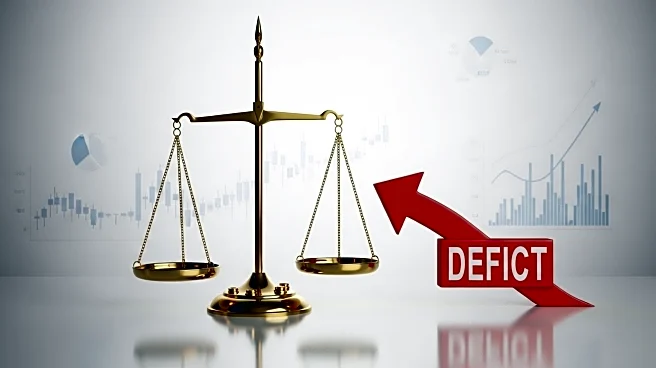What's Happening?
Recent corporate tax breaks are significantly contributing to the increase in the federal deficit, according to a Congressional Budget Office analysis. The reduction in corporate taxes, enacted by the Republican Congress, is projected to increase the deficit by $77
billion this year alone. These tax cuts follow the Tax Cuts and Jobs Act of 2017, which reduced the corporate tax rate from 35% to 21%, resulting in a loss of approximately $188 billion in revenue last year. While proponents argue that these cuts stimulate economic growth, critics highlight that the benefits primarily flow to wealthy individuals and top-level corporate executives, exacerbating economic inequality.
Why It's Important?
The impact of corporate tax breaks on the federal deficit raises concerns about fiscal responsibility and economic equity. While intended to boost economic growth, these tax cuts have not paid for themselves and have contributed to widening income disparities. The reduction in corporate tax revenue limits the government's ability to fund essential services and programs, potentially affecting millions of Americans. The debate over tax policy reflects broader discussions about the balance between stimulating business investment and ensuring equitable economic benefits.
What's Next?
As the effects of the tax cuts continue to unfold, policymakers may face pressure to reassess the balance between corporate tax incentives and fiscal sustainability. The upcoming third-quarter earnings reports from major corporations will provide further insights into the financial impact of these tax breaks. The ongoing discussion about tax policy could lead to legislative proposals aimed at addressing the deficit and promoting economic equity.
Beyond the Headlines
The corporate tax cuts highlight ethical considerations regarding the distribution of economic benefits and the role of government in regulating corporate behavior. The focus on tax incentives for businesses raises questions about the prioritization of corporate interests over public welfare. Long-term implications may include shifts in public policy and economic strategies to address inequality and fiscal challenges.

















